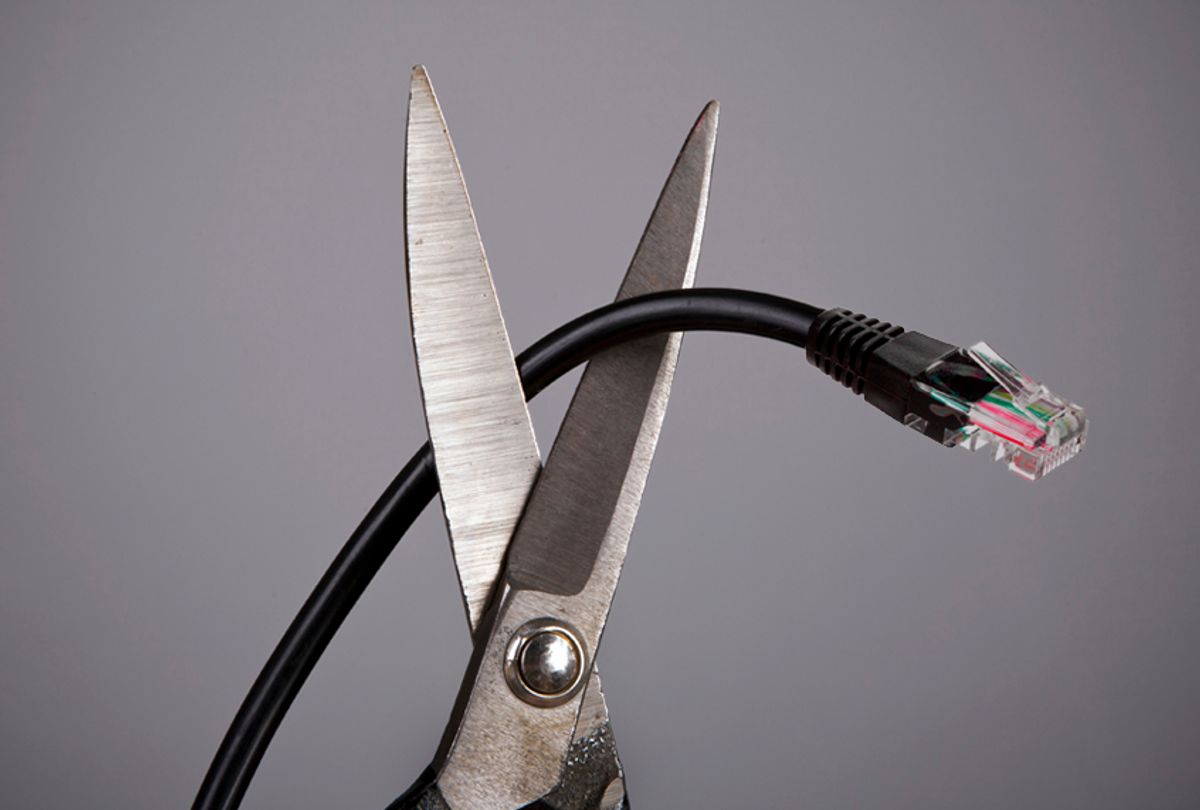After months of public debate and legislative resistance on the left, net neutrality as we know it ends today. The Federal Communications Commission’s (FCC) overturn of net neutrality rules, which were enacted in 2015, prohibited internet service providers from offering in unequal access to web content.
The FCC voted to repeal the rules in December 2017 in a 3-2 vote along party lines. The unraveling of these regulations has indeed been a partisan issue — nearly all Democrats are pro–net neutrality, and the mission to end them was led by FCC Chairman Ajit Pai. In May, Democrats banded together in one last attempt to block the overturn when they filed a discharge petition, which, under the Congressional Review Act, would allow for a Senate vote. This initiative, which did not pass the House, would have prevented the overturn from taking effect today, June 11.
“As a result of this inaction, starting today internet service providers (ISPs) have the power to force websites to pay fees for faster internet speeds and limit consumers’ ability to access the internet content of their choice,” California Attorney General Xavier Becerra said in a statement. “In this 21st century global economy, access to a free and open internet is imperative. It has become a hallmark of our American society," he continued.
On Sunday, the night before the official overturn, Pai celebrated with an op-ed on CNET.
“Monday, we are ending this flawed approach and allowing smaller internet service providers to focus their efforts on deploying more broadband, connecting more Americans with digital opportunity, and offering more competition in the marketplace,” he wrote. “That approach will be very positive for consumers.”
Yet critics have been openly worried that this will harm customers, not help. Amber McKinney, who writes about telecommunications and serves as Assistant Managing Editor at the legal publication Law360, explained to Salon changes at first will be subtle — but as before, it is difficult to predict what will happen.
“Net neutrality is officially dead, but users shouldn't expect to log on and see a vastly different internet landscape overnight,” she said to Salon. “The changes are expected to be less predictable, and possibly a bit more subtle at first.”
If a consumer’s ISP is expected to make a change, the consumer will have to be notified first, McKinney said.
“They are required to alert subscribers of that fact before they implement data throttling or blocking access to websites, or any of the other changes that are possible in a post-net neutrality America,” she said. “After that there are just no guarantees about what happens. Users could see some sites loading more slowly as service providers start charging companies for fast lanes and slow lanes of internet traffic.”
In December, after the FCC voted to overturn the regulations, many speculated that ISPs will offer tiered-packages like those in Portugal. For example, an ISP could charge $25 for a basic Internet access, and then ISPs could add extra charges for additional services like streaming video or using social media. Currently, the U.S. has 62 ISPs, including big names like AT&T Wireless, Sprint, T-Mobile, Xfinity (a Comcast product) and U.S. Cellular.
The other bit of speculation concerns what ISPs will do to companies who generate a lot of traffic, or have features that require a lot of bandwidth. This could result in blocking or throttling. ISP conglomerates have publicly said they don’t have plans to take advantage of the overturn, though it is hard to know how much to trust them at this point, given that this is the politically popular public position to take; indeed, AT&T, Verizon and Comcast said in January they did not plan on blocking content.
Analysts at Moody’s Investors Service said in December that they believed that ISP companies will “tread lightly” as a result of fear of bad publicity.
"We believe ISPs, namely Comcast, AT&T, Verizon and Charter, will tread lightly when it comes to engaging in paid prioritization and throttling, as there could be significant negative public reaction to these acts,” several analysts wrote in a co-penned note. “At least in the near term, the cost of negative publicity on their existing businesses far outweighs the benefit of additional revenue streams these companies can generate from paid prioritization agreements.”
McKinney said larger internet companies could be the first the feel the effects of today’s overturn though.
“While all of this is hard to predict, some sources have been telling Law360 that companies with heavy internet presence may be the first to feel impacts from the rollback,” she said. “The line of thinking is that ISPs may approach companies to like Facebook, Amazon, and Netflix to negotiate fees to keep their sites at top speeds.”
“Those agreements may take time to negotiate, and after it all shakes out consumers may see the changes to their service,” she added.
Before 2015, there were instances in which ISPs took advantage of an Internet without net neutrality rules, which is what helped pave the way for Obama’s net neutrality rules. In 2007, Jon Hart of California, sued Comcast for allegedly blocking him from using the peer-to-peer application BitTorrent. In 2012, AT&T limited the use of Apple’s Facetime feature on their phones, in an attempt to save bandwidth.
In the meantime, some state policymakers are taking matters into their own hands regarding the officiated overturn. Washing state and Oregon have passed state laws that are similar to the 2015 laws that have been repealed. California passed a bill in May to reestablish, too. There are several other states who have tried and failed, or are in the process of enactment.
“The repeal of #NetNeutrality rules goes into effect today, but this fight is not over,” Sen. Kamala Harris, D-Calif., tweeted. “House Democrats are trying to gather support to force a vote to save Net Neutrality just like we did in the Senate.”



Shares